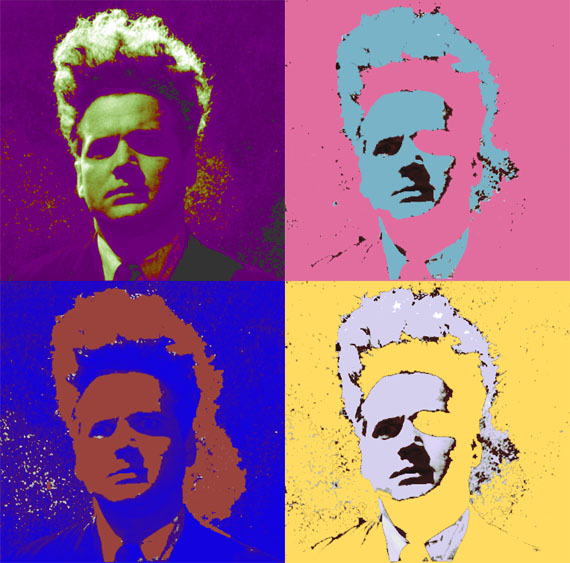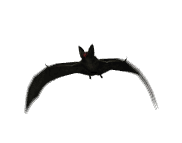
 BY DAN BUSKIRK FILM CRITIC By now, after 10 feature films, assorted shorts and TV’s weirdest nighttime soap, we have mapped many of the dark recesses of the psyche of writer/director David Lynch. We know just what provocations push his buttons. We can relax into a comfort zone now while Lynch unleashes his expected tropes — the bugs twitching underground, the violent sex, the ironic old pop songs, the flashes of gore and morphing identities. Yet somehow, despite his mannerisms becoming ever more familiar, the years have done little to dull the effect of Lynch’s debut masterpiece, 1977’s sleepwalking vision “Eraserhead.”
BY DAN BUSKIRK FILM CRITIC By now, after 10 feature films, assorted shorts and TV’s weirdest nighttime soap, we have mapped many of the dark recesses of the psyche of writer/director David Lynch. We know just what provocations push his buttons. We can relax into a comfort zone now while Lynch unleashes his expected tropes — the bugs twitching underground, the violent sex, the ironic old pop songs, the flashes of gore and morphing identities. Yet somehow, despite his mannerisms becoming ever more familiar, the years have done little to dull the effect of Lynch’s debut masterpiece, 1977’s sleepwalking vision “Eraserhead.”
The most memorable moments in Lynch’s films are always when reality slips away and his surreal id is allowed to take over; “Eraserhead” is one of the few full-length features daring to spend its entire running time in Dreamland. From its opening, when we see Henry’s horizontal head silently screaming as a giant sperm floats from his mouth, to the ending where we leave him dancing in the arms of the tumor-cheeked Lady in the Radiator, “Eraserhead” out-maneuvers logic and strands the viewer in a timeless void where every potential pleasure contains a sick joke as a punchline.
The film became a must-see on the midnight circuit soon after its release, playing to crowds who arrived at the theater just as decent people had gone to bed, to watch films like Tod Browning’s all-too-real “Freaks,” or the doper camp of “Reefer Madness.” ” Eraserhead” was still cropping up in the early ’80s, and I watched it first as a 17-year-old, from the balcony of the late, lamented State Theater in Newark, Del. It reverberated through me.
My unconscious dread was tapped by a scene early in the film. Henry plods through the grey landscape like a lobotomized Stan Laurel, bound for a family dinner with Mary, the young woman he is dating, at her parents’ house. After Mary has a seizure, her father serves an entree of tiny “man-made” chickens. Henry is given the honor of carving the meat, but draws back to watch the tiny jerking hen ooze goo all over the plate. Finally, Mary’s mother takes him aside to talk. The mother bitterly informs him that Mary had a baby (“They’re still not sure it IS a baby,” Mary corrects) and now Henry must marry her and take care of the child. His mother-in-law-to-be then kisses Henry hungrily on the mouth.
The YouTube ID of 51ibgBv6En8&eurl= is invalid.
Trapped within expressionistic black and white shadows with an unloving wife, Henry is cursed to a future in this industrial hell, a nightmare that struck me where my fears lived. I, too, lived in the shadow of industrial squalor, in South Jersey between the nuclear plant and the lead division of Dupont Chemical. As a horny teen virgin, my greatest fear was that finally a girl would have sex with me, and she would instantly become pregnant, forcing me to labor in the nuclear plant and live in that god damned small town forever. I’d spend the rest of my years yelling up at the overcast sky, “If only I could have held back!”
The perverse world of “Eraserhead” was born nowhere else but in Philadelphia, and the city’s inspirational setting is one of the few clues Lynch gives about the film’s personal meaning. Lynch was a Eagle Scout from Alexandria, Va., when he came to a rapidly-declining Philadelphia in January, 1966, to attend the Pennsylvania Academy Fine Art, living in a house catty-corner to the old City Morgue at 13th and Callowhill with his childhood friend (and future Mr. Sissy Spacek) Jack Fisk. He remembered his Philly years in a profile included in the press kit for “Blue Velvet”:
Lynch calls that period ‘one of the best times of my life — and one of the worst times, too. The area had the greatest mood, an unbelievable mood. It was an industrial part of the city, with the strangest characters, the darkest nights. Factories, smoke, railroads, diners, true factory people — you could see strange stories in their faces. You could see plastic curtains and windows held together with Band-Aids, things stuffed into holes in the windows. Associations like smiling bags of death that they brought the bodies in with. We’d always go through the morgue garage en route to the hamburger restaurant. I only lived at night then.’ It was a horrible place, but it was a great feeling.
He later summarizes his Philly experience: “‘There was tremendous fear in Philadelphia, fear I didn’t realize I was living with until I eventually moved to California and the fear left.'” That, Lynch says, was the genesis of “Eraserhead.”
Fear permeates “Eraserhead,” but only recently has the film’s second half haunted me. A couple of years back my wife and I had a child, and during those newborn months, when I hadn’t slept in days and the baby was inconsolable, I’d think of Henry’s hangdog expression as he sat in that barren apartment with his slimy reptilian baby wailing away. By Lynch’s second year in Philly, he himself was married to fellow student Peggy Lentz (apparently residing on the 2400 block of Aspen, in the Art Museum neighborhood) and they had a child, Jennifer, in April of ’68. (Jennifer Lynch would later direct the amputation thriller “Boxing Helena” and write The Secret Diary Of Laura Palmer) The fear of fatherhood, poverty and the scary vulnerability of infants seeps through every sweaty frame of the film’s second half.
When I revisited “Eraserhead” recently, it was the humor of Henry’s situation that revealed itself. The exaggeration of the circumstances, the irrationality of the fears, the comedy in the empty rhythms of the film’s many awkward semi-silences — these elements build like an elaborate setup to a silent film gag, all perfectly underscored by factories hissing and droning and Fats Waller’s organ-playing riffs muffled through the brick.
“Eraserhead” still offers the excitement of seeing one of film’s great talents discovering his themes. It still bubbles over with profound imagery, and it still sounds like no other film. And at least for me, it offers a skewed joyfulness, with a chance to see former private terrors transformed into relieved laughs. After, all in Heaven, everything is fine.
